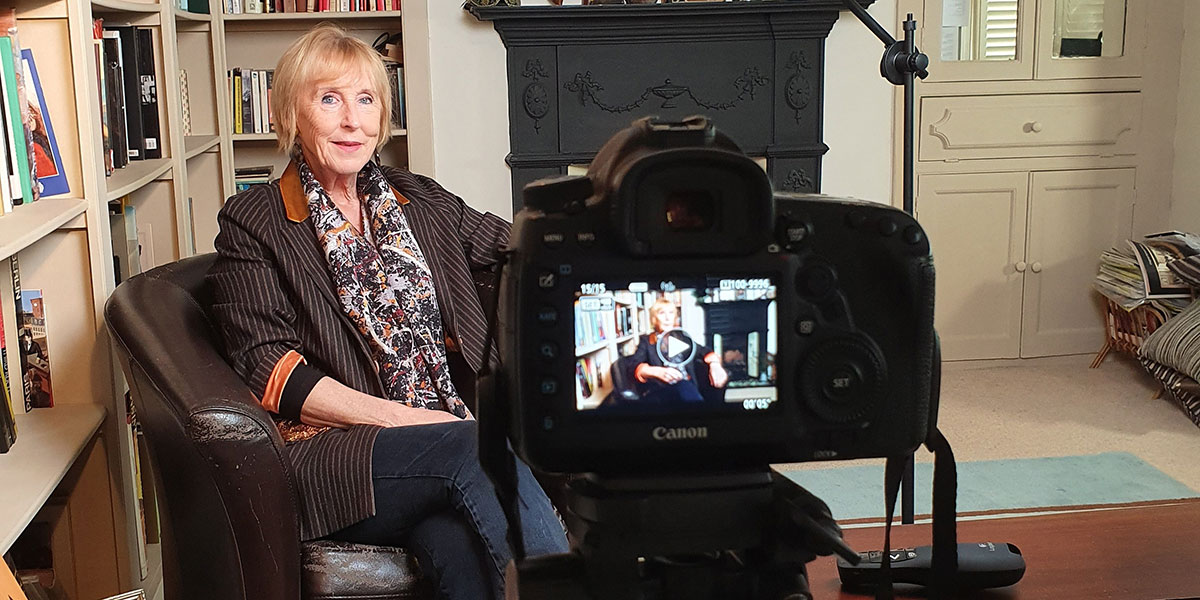Dr Jacqueline Cockburn is an art historian and guest lecturer for Christie’s Education. Jacqueline is also the Managing Director of Art and Culture Andalucía in Southern Spain that specialises in the art and culture of the region. We talked to Jacqueline about the transition to online learning, how she sees art education changing, the impact the pandemic is taking on museums and galleries, and her upcoming course on Frida Kahlo.
Q. How are you coping with the current situation in general?
I am well and so is all my family which is the main thing for me. As for coping, routine matters to me. I exercise a lot, teach online, write, read, and keep in touch with friends and family. I think we all feel anxious and of course my own small educational business in Spain has been affected but we hope to be up and running again, and even busier than usual next year.
Q. Having now presented three virtual courses for Christie's Education, how has the transition been to online teaching, and how have you had to alter your practice?
I was commissioned to do some short films at the start of the lockdown, so I became used to the camera. My son is a videographer and lives with me so it was easy to do at home, although I found it very different to live lecturing. A great deal of my energy comes from a live audience. I love to see a response, or ask a question, or relate in some way to my audience so a camera felt lonely and clinical and without the adrenalin rush or nerves in front of an audience which keeps you on your toes - I was not sure how it would work. Zoom is a halfway process between the camera and the live. You know the audience is there and you can see faces but you are still quite removed which takes getting used to. I realised quite early on that you must focus on the camera on your computer and then get into the zone of your thoughts. I do not have a set script, so it allows me to focus, go off piste from time to time but then draw back the argument. The sense of focus is really amazing with nothing to distract you. I have got better at staying sharp and alert to ideas so I am now enjoying the process.
Q. What do you think the advantages are for students attending these online courses during this time?
First of all, stimulation is important at a time like this and secondly routine. My current students give up nearly all their afternoon to be with me and that is how I want them to feel. I focus on rhetorical questions which keeps them thinking. You have to learn to breathe a little slower on online lectures so that the experience of the viewer is thoughtful. They don’t want to be bombarded with facts but led into thinking with you so that, in the peace of their own homes, they can reflect, jot down a few things if they like, or bring up a question on a chat forum. The current audience is very international with students from 11 different countries all over the world. They can now have classes without having to travel at all and share debates and knowledge with others.
Q. Do you see Art Education changing dramatically going forward? What changes would you expect to see?
I think online learning will become part of educational programmes. Of course, face-to-face learning is fundamental and cannot be replaced, but audience learning, where the onus is on the quality of the lecture and the material covered, can also be done very successfully online.
Q. What impact do you think the pandemic will have on museums and galleries? How do you think the visitor experience might change?
Difficult to say at this moment. I care a lot about the educational programmes in galleries and these may well have to go online for a while. Once there is a vaccine my hope is that our gallery experience will not change. We may have to let fewer people in to block buster exhibitions but to be honest sometimes it has been difficult to see a work of art due to the crowds so perhaps, if that can work financially, it might be a good thing.
Q. You will be presenting another course for Christie's Education at the end of June. Could you tell us a bit more about that?
Yes, on 29 June you can join me for 4 days in the afternoons, for Frida Kahlo; Beyond the Mirror. I will be exploring the life and work of this Mexican artist drawing on her diaries and letters, her belongings and clothes, her jewellery, and her mirrors. I will unravel her struggle with illness and pain, her love affairs, and her extraordinary presence in Mexico at a time of social upheaval. I will end with a lecture on Remedios Varo, Leonora Carrington and Kati Horna who arrived in Mexico in the 1940’s, became close friends and gradually earnt Kahlo’s respect. It is a very colourful and lively course and should be great fun during such challenging times.
Join Jacqueline on her next course 29 June to 2 July on Frida Kahlo: Beyond the Mirror here

